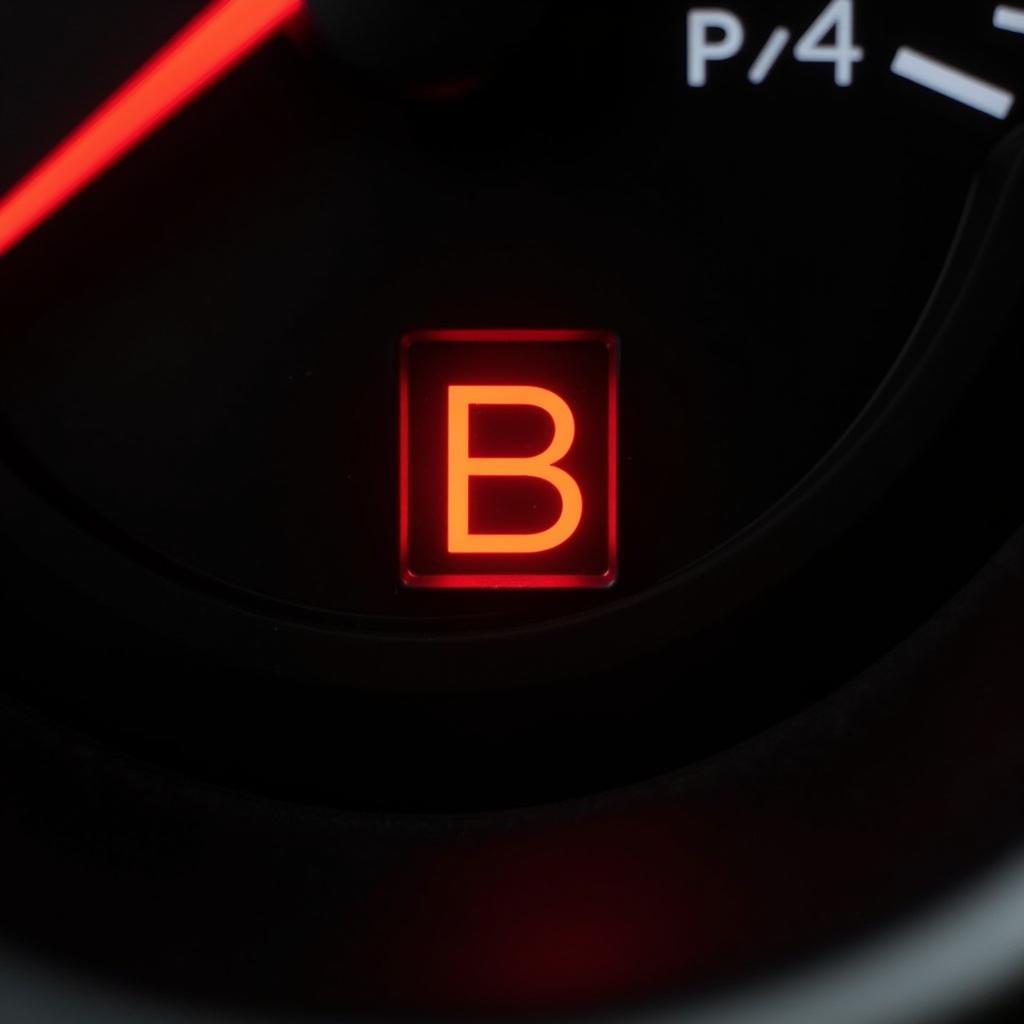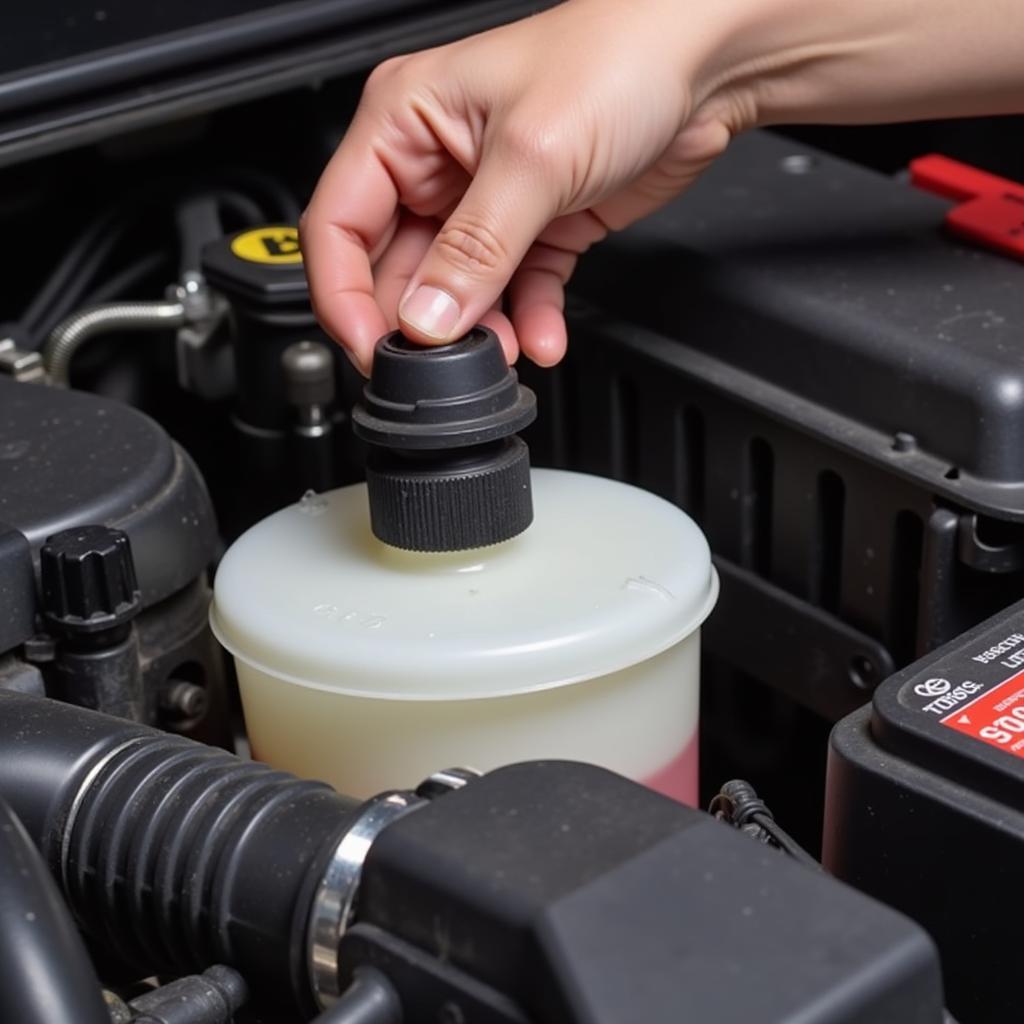The dreaded brake warning light on your Toyota 4Runner. It can be a minor annoyance or a sign of a serious issue. This comprehensive guide will delve into the various reasons why your brake warning light might be illuminated and provide you with practical solutions, from simple DIY fixes to more complex repairs requiring professional assistance.
Understanding Your 4Runner’s Brake System
The brake system in your Toyota 4Runner is a complex network of components working together to ensure safe and reliable stopping power. Understanding the basics of how these components interact is crucial to diagnosing the cause of a brake warning light. The system primarily consists of the master cylinder, brake lines, brake calipers, brake pads or shoes, and the brake fluid itself. Any fault within this system can trigger the warning light.
Common Reasons for a Brake Warning Light
There are several common culprits behind a brake warning light on a Toyota 4Runner. Low brake fluid is often the most straightforward cause. Over time, brake pads wear down, requiring the brake calipers to extend further and thus use more brake fluid. A leak in the brake lines can also lead to low fluid levels. Another common reason is a faulty parking brake sensor. If the parking brake isn’t fully disengaged, the sensor can trigger the warning light. Worn brake pads are also a frequent trigger, as they reach a minimum thickness level designed to activate the warning light. Finally, a malfunctioning ABS (Anti-lock Braking System) module can also illuminate the brake warning light.
 Brake Warning Light Illuminated on Toyota 4Runner Dashboard
Brake Warning Light Illuminated on Toyota 4Runner Dashboard
Diagnosing the Problem
Start by checking your brake fluid level. The reservoir is typically located under the hood, near the firewall. If the level is low, top it off with the correct type of brake fluid specified in your owner’s manual. However, simply adding fluid isn’t a long-term fix; low fluid often indicates a leak or worn brake pads, which require further investigation. Next, ensure your parking brake is fully disengaged. If the light remains on, inspect your brake pads for wear. If they appear thin or worn, it’s time for a replacement.
 Checking Brake Fluid Level in Toyota 4Runner
Checking Brake Fluid Level in Toyota 4Runner
When to Seek Professional Help
If you’ve checked the common culprits and the brake warning light persists, it’s crucial to seek professional help. A qualified mechanic can perform a more thorough diagnostic using specialized equipment, potentially uncovering issues such as a faulty ABS module, damaged brake lines, or problems with the master cylinder. Delaying professional diagnosis can lead to more extensive and costly repairs down the road.
Brake Warning Light and ABS Issues
A brake warning light accompanied by an ABS warning light often signals a problem with the Anti-lock Braking System. This could range from a faulty sensor to a more serious issue with the ABS module itself. Addressing ABS problems promptly is vital for maintaining optimal braking performance, especially in challenging driving conditions.
“A common mistake is ignoring the brake warning light, assuming it’s just a minor issue,” says Johnathan Miller, a certified automotive technician with over 20 years of experience. “This can lead to significant safety risks and potentially more expensive repairs in the long run.”
Preventing Future Brake Problems
Regular maintenance is key to preventing future brake issues and keeping your Toyota 4Runner safe. Adhering to the recommended brake pad replacement schedule in your owner’s manual is crucial. Regularly checking your brake fluid level and having your brake system inspected by a qualified mechanic during routine maintenance visits can help identify potential problems before they become major headaches.
Conclusion
The brake warning light on your Toyota 4Runner should never be ignored. While it could be a simple fix like low brake fluid or a disengaged parking brake, it could also signal a more serious issue. This guide has equipped you with the knowledge to troubleshoot common causes and understand when professional assistance is necessary. Remember, maintaining a healthy brake system is paramount for your safety and the longevity of your vehicle. Address the brake warning light promptly to ensure safe and reliable stopping power for your Toyota 4Runner.
“Preventative maintenance is the best way to avoid costly brake repairs,” adds Miller. “Regular inspections can catch potential issues early on, saving you time and money in the long run.”
FAQ
- What does the brake warning light mean? The brake warning light indicates a potential problem with your braking system, such as low brake fluid, worn brake pads, or a faulty sensor.
- Can I drive with the brake warning light on? While you might be able to drive a short distance, it’s not recommended. Driving with a brake warning light on can be dangerous and could lead to further damage.
- How often should I check my brake fluid? It’s a good practice to check your brake fluid level at least once a month.
- How often should I replace my brake pads? Refer to your owner’s manual for the recommended brake pad replacement interval for your specific Toyota 4Runner model.
- What is the ABS warning light? The ABS warning light indicates a problem with your Anti-lock Braking System.
- How much does it cost to fix a brake warning light issue? The cost varies depending on the underlying cause. A simple brake fluid top-off might cost a few dollars, while a more complex repair like replacing the ABS module could cost significantly more.
- Can I fix the brake warning light issue myself? Simple fixes like adding brake fluid or adjusting the parking brake can be done DIY. However, more complex repairs require professional expertise.
